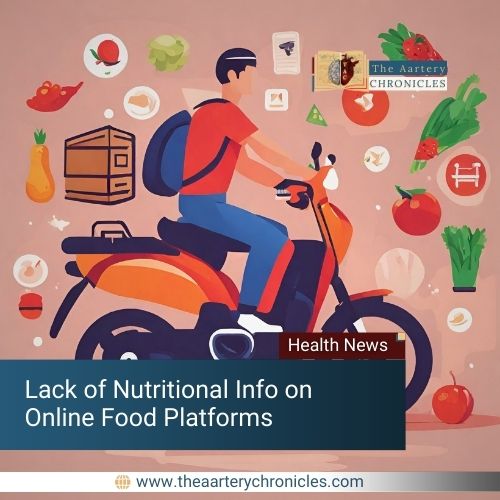Study Reveals Lack of Nutritional Info on Online Food Platforms: Call for Reform
A recent study done by academics at the University of Sydney found that nutritional information is frequently absent from menus on major online meal delivery platforms. The study, which focused on online meal delivery services in Australia, discovered that most menu items lack important nutritional information that may help consumers make better decisions.
In 2011, the New South Wales Menu Labelling Scheme was established, mandating big fast-food restaurants to show the average energy content of menu items in kilojoules, as well as a reference statement on daily energy consumption. However, the study found that this information is frequently missing or insufficiently given on online meal delivery platforms, emphasizing the need to update present menu labeling legislation to meet the expanding demand for online food services.
The research team examined menus from 43 different large food outlets across 10 suburbs in Sydney, reviewing a total of 482 menus from popular platforms such as Uber Eats, Menulog, and Deliveroo. Their findings revealed that less than six percent of menus on these platforms included complete kilojoule labeling for all items.
Moreover, the study identified significant inconsistencies in kilojoule labeling between different locations of the same franchise and between in-house company-owned apps and third-party delivery services. This lack of standardized nutritional information poses concerns, particularly considering the increasing reliance on digital platforms for food purchases.
Lead author Sisi Jia emphasized the importance of displaying kilojoule content on menus to help consumers make informed health choices. Jia noted that while there is a growing demand for food delivery services, the extent to which menu labeling is implemented on online platforms remains unclear.
The study, published in the journal Public Health Nutrition, revealed that only a small percentage of menu items on platforms like UberEats, Menulog, and Deliveroo had complete nutritional labeling. Additionally, a significant portion of menu items from mid-sized food outlets were classified as unhealthy, despite being exempt from providing nutritional information under current laws.
To address the shortcomings in nutritional labeling on online food delivery platforms, the researchers advocate for updates to existing menu labeling laws to ensure consistency and transparency in providing essential nutritional information to consumers. Dr. Stephanie Partridge, another researcher involved in the study, emphasized the need for clear leadership in applying menu labeling schemes to online food retail platforms.
Source: Inputs from various media Sources

Priya Bairagi
Subscribe to our Newsletter
Get Articles of your preference delivered to your Mailbox!










